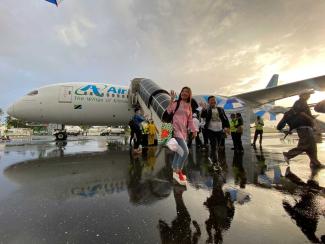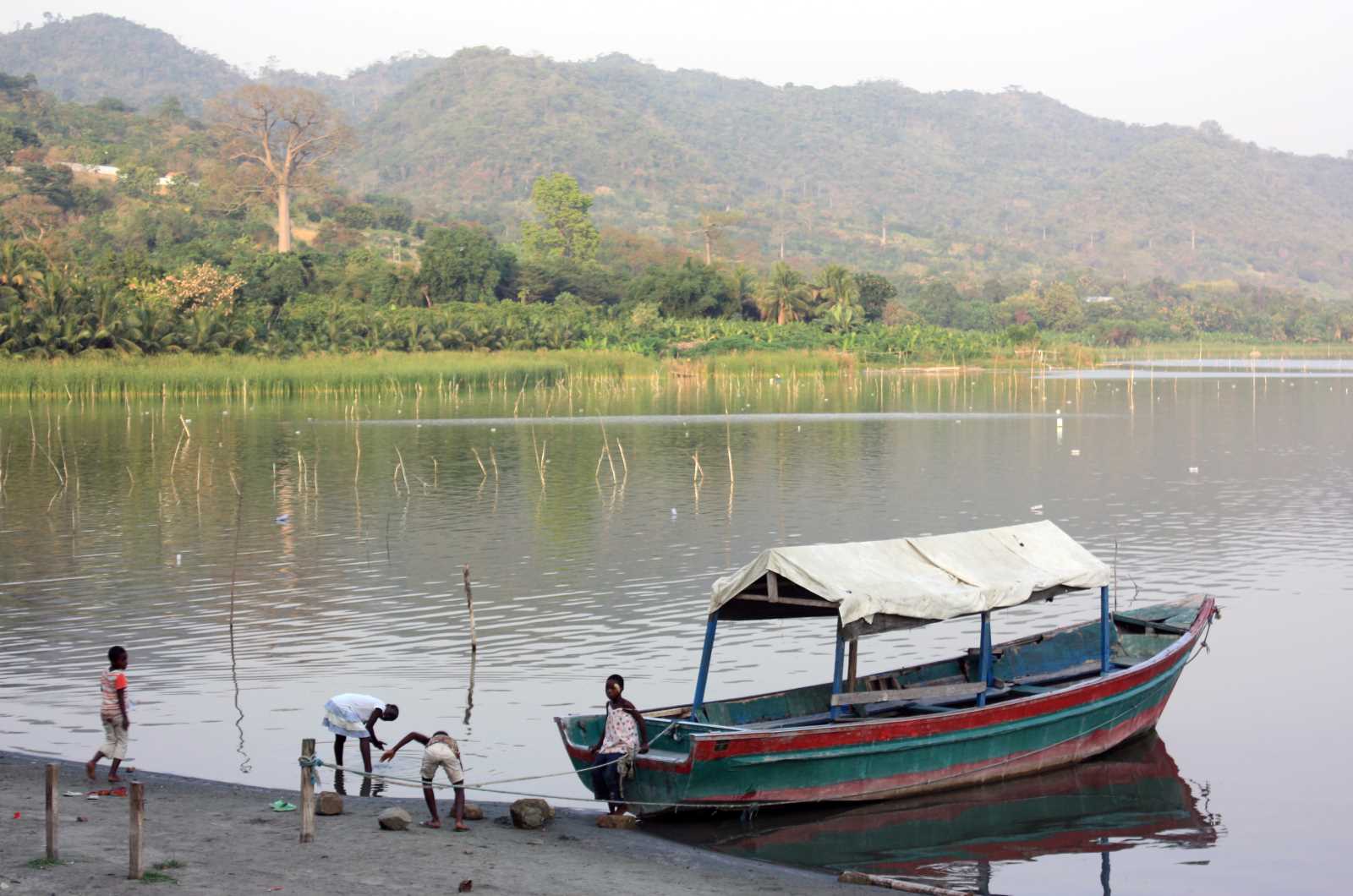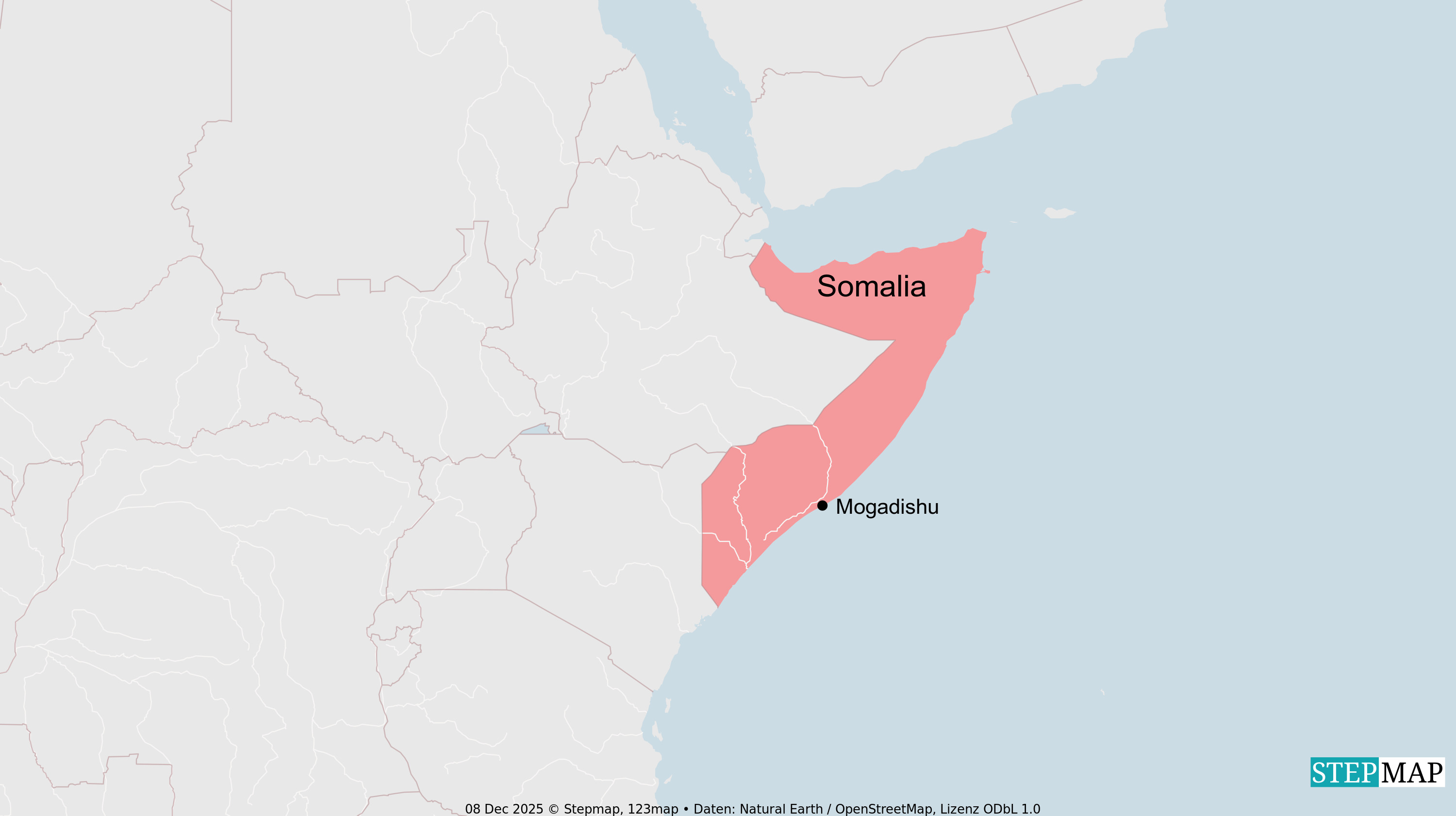Global tourism industry
A not very sustainable recovery of global tourism

The global desire to travel is back. People are travelling as much now as they did before the Covid-19 pandemic, according to the latest World Tourism Barometer published by UN Tourism (formerly UN World Tourism Organization – UNWTO). In the first quarter of 2024, the number of international arrivals (overnight visitors) worldwide reached 97 % of 2019 levels. Excluding inflation, revenues from international tourism in 2023 were only just below pre-pandemic levels.
International travel dropped by 72 % in 2020 as a result of the pandemic, with devastating consequences for the tourism industry worldwide. Since then, it has staged a slow but steady recovery. However, the regional differences are considerable. In 2023, the countries of the Middle East saw 22 % more international arrivals than in 2019, while Europe, Africa and America continued to register a shortfall. The biggest deficit – a 35 % fall against 2019 – was noted in the Asia and Pacific region.
Poorer countries recovering more slowly
The UN report also shows a disparity between rich industrialised nations and poorer parts of the world. In 2023, the former registered more than 90 % of 2019 travel volume, while the figure for emerging economies remained around 84 %. The least-developed countries, at less than 81 %, are proving the slowest to recover – despite a number of positive examples such as Ethiopia (30 % growth) and Tanzania (plus 20 %).
The World Economic Forum’s “Travel & Tourism Development Index 2024” (TTDI) picks up on these differences too. The TTDI measures the development of tourism in 119 countries based on economic, political, environmental and social factors. High-income countries perform considerably better in the TTDI ranking than low-income countries. A number of low- and middle-income countries – including Côte d’Ivoire, Tanzania and Indonesia – significantly improved their index scores compared to 2019. However, the TTDI authors note that there are still marked differences in levels of participation in global tourism.
There are multiple reasons for this: in many countries, more investment is needed – in better healthcare systems and working conditions, local infrastructure and information and communication technologies – to facilitate access to the international market. The report’s authors also find that developing countries’ cultural and natural resources are less well developed – a fact underlined, for instance, by the relatively small number of UNESCO World Heritage sites in sub-Saharan Africa. This historical underrepresentation makes it difficult to protect important sites and sustainably develop tourism infrastructure. Places recognised as World Heritage sites could attract visitors even in a difficult economic environment.
Climate crisis and other challenges
One of the biggest challenges facing the travel and tourism industry is the climate crisis.
According to the TTDI report, the sector was responsible for eight percent of global greenhouse-gas emissions in 2019 and UN Tourism calculates that emissions from tourist travel could increase by 25 % between 2016 and 2030. At the same time, many regions that depend on tourism are severely affected by rising sea levels, destruction of ecosystems and increasing extreme weather events.
UN initiatives and tourism associations have long been calling for a comprehensive transformation of global tourism in line with the UN Sustainable Development Goals (SDGs). In the “Glasgow Declaration on Climate Action in Tourism”, numerous companies and institutions pledged in 2021 to contribute to meeting the Paris climate targets. The TTDI researchers find that tourists’ travel behaviour has certainly changed in some areas: they travel shorter distances and use alternative forms of transport to air travel. According to the report’s authors, however, this is not primarily due to increased environmental awareness; the main reasons are economic, due to factors such as global inflation and fluctuating fossil-fuel prices. In addition, there is growing uncertainty over geopolitical conflicts.
The International Energy Agency (IEA) reports that carbon emissions from global air travel – including travel for purposes other than tourism – reached around 80 % of pre-pandemic levels in 2022 and will probably exceed the 2019 figure in 2025. Furthermore, the return of visitors means that old problems such as overtourism and seasonality have resurfaced in many places.
It was often said during the pandemic that there could be no going back to “business as usual”. In some areas, measures have already been taken to make the tourism sector more environmentally and socially sustainable and therefore more resilient to crisis. They include access restrictions and tourist levies to ease the burden on places that are particularly under pressure. Others should follow suit here, because the climate crisis demands swift and comprehensive action – in tourism as well as in other sectors.
Links
UN Tourism: World Tourism Barometer.
https://www.unwto.org/un-tourism-world-tourism-barometer-data
World Economic Forum: Travel & Tourism Development Index.
https://www.weforum.org/publications/travel-tourism-development-index-2024/
Konstantin Auwärter studies International Relations and Communication Science at the University of Erfurt. He wrote this article as part of his internship at D+C/E+Z.
euz.editor@dandc.eu
















